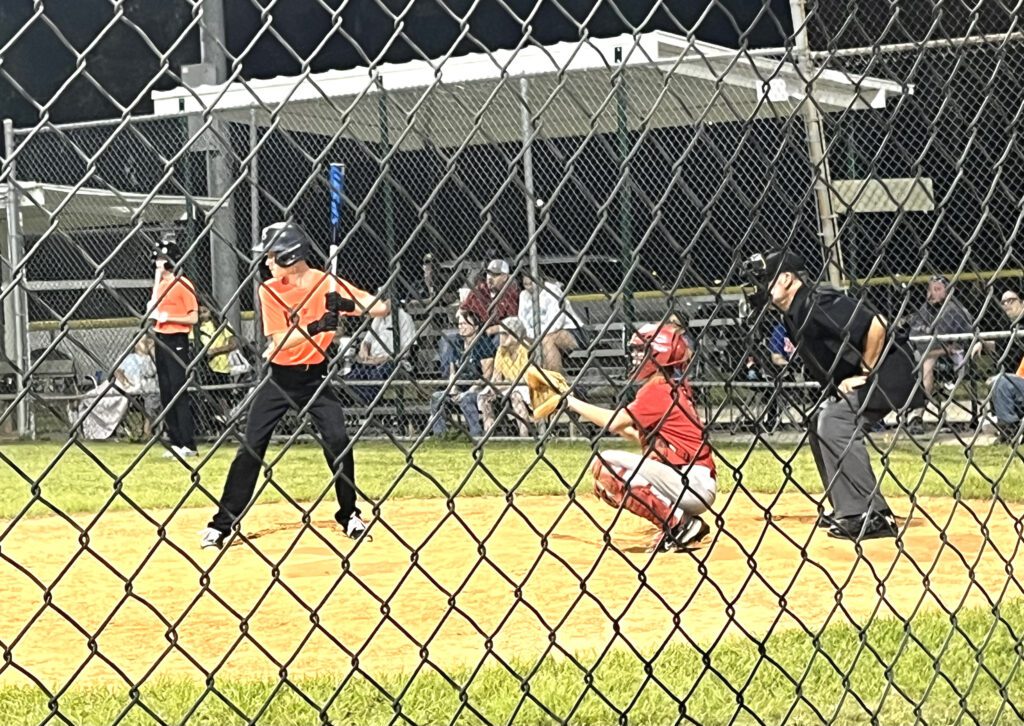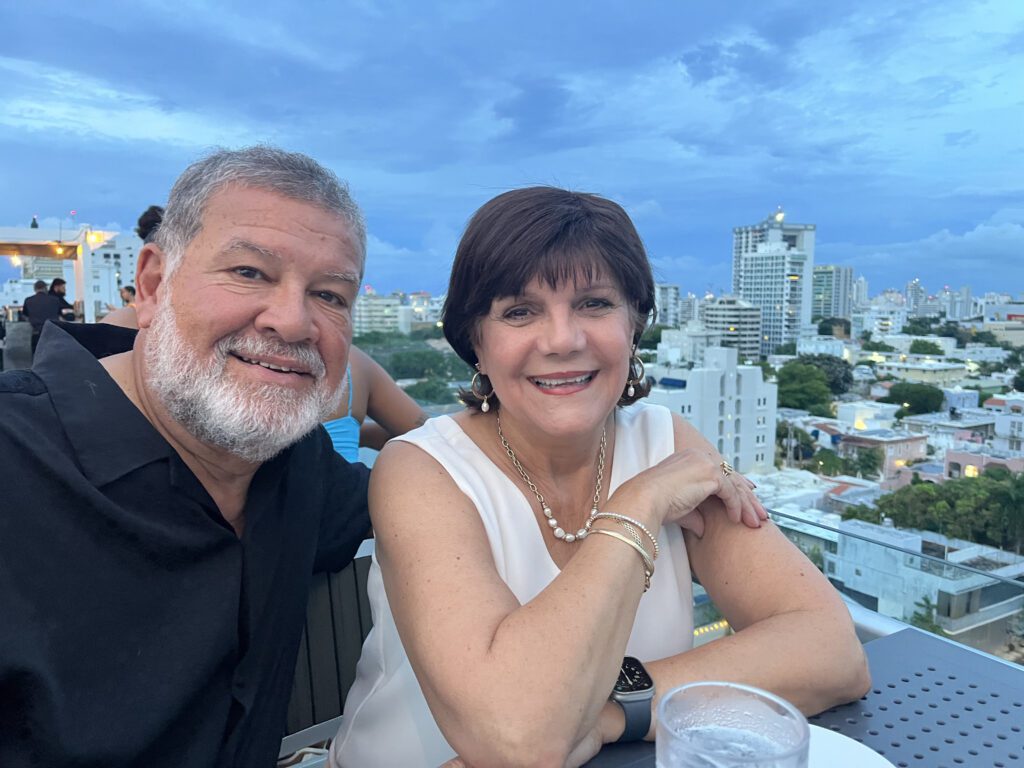Alex Santiago Learns Family Is at the Root of His Heart in More Ways Than One
by REBEKAH PIERCE
“Listen to your heart.”
That’s the advice given to practically everyone these days, it seems, from young entrepreneurs thinking about launching their own startups to high school students attempting to choose a college major.
But for 72-year-old Alex Santiago, the advice is quite literal, to say the least.
The husband of county commissioner Martha Santiago, Santiago suffered a heart attack on September 11, 2023, while umpiring a baseball game.
In the United States, someone has a heart attack about once every 34 seconds, so Santiago’s experience wasn’t exactly unusual. What made the attack so unique, however, was the fact that it was predicated by few risk factors, zero symptoms, and zero warning.
“While I was umpiring, I fainted on the field,” Santiago says. “I’ve never had any heart condition. [They] thought I was having a heat stroke since it was hot out and I had just finished doing two games at the plate.” He remembers his vision blurring prior to fainting, but at the time, chalked it up to the intense heat.
Though he has no recollection of doing so — and didn’t find out until much later that this happened — Santiago told bystanders right as he fainted, “my heart.” Because of this, he was confused upon waking up and initially resisted going to the hospital (something the paramedics strongly encouraged).
After undergoing a battery of tests when he arrived at the hospital, doctors discovered that Santiago needed a triple bypass because three separate parts of his heart’s arteries were roughly 80% to 95% blocked.
This news was shocking, especially because Santiago had always gone to great pains to take care of his health. “Every year, my numbers were good, cholesterol down, then all of a sudden somebody tells you, ‘You have to have open-heart surgery.’ It caught me off guard.”
Although Santiago wanted to have the surgery done immediately, doctors required him to wait a week, in part because he had been taking a medication known to thin his blood. Doctors said it was too risky for him to wait out the week at home, so instead, he found himself spending a week in the hospital.
He praises the staff at Winter Haven Hospital for a multitude of reasons, but the biggest is the care they gave to him leading up to his surgery.
“I kept thinking, ‘Why me? I’m in perfect health,’” he recalls. A nurse sat next to his bed and told him he just had to stay strong and that she knew he would make it. Nevertheless, Santiago found himself fearing the worst.
“It was the longest week of my life,” he says.
The triple bypass ended up being a quadruple bypass, a decision the doctor made during the surgery.
Afterward, Santiago remained in the hospital for a week before being sent home for rehabilitation. He met with multiple therapists and visited the hospital three times a week for 12 weeks to get his heart back in fighting shape. Minus a brief complication after surgery that led to doctors discovering that Santiago’s heart was beating too quickly, requiring an ablation procedure, it’s been smooth sailing. He’s now off most of his heart medications. “I mean, don’t go eat Kentucky Fried Chicken right after,” he joked, but otherwise, said he feels great.
Despite the happy ending to Santiago’s story, he recognizes that it may not have ended his way. He has had multiple family members with heart problems, including a brother who passed at the age of 56 from a heart attack as well as a father and sister who both had a quadruple bypass from the same doctors who operated on Santiago.
Those doctors told Santiago, “That’s something medicine can’t change. A gene is a gene.”
Inherited heart conditions are common, affecting about 1 in 250 people worldwide, and testing for these conditions can be challenging and somewhat limited. Nevertheless, Santiago urges everyone with a family history of heart disease to get themselves tested and to stay vigilant about any symptoms they might have, even if they’re only fleeting.
“Those with a genetic predisposition of heart disease are at a higher risk,” says Casey Ford, director of cardiovascular services at Winter Haven Hospital. “This can be because of inherited factors, such as cholesterol levels and blood pressure. Also families tend to share lifestyle habits, which can also contribute to that risk. That means it’s even more important to practice good habits, such as diet, regular exercise and avoiding risky behavior, such as smoking. If you’re at a heightened risk, it’s also important to engage in preventive behaviors, such as blood pressure and cholesterol monitoring.”
If family — or genetics, in this case — got Santiago into this situation, it’s also what got him out of it. He credits the strength and support of his family throughout this time, saying they were there for him every step of the way.

He recalls seeing other surgical patients who had nobody visiting them.
“It’s hard to see people going through this [without family],” he said. “Besides [the support of] God, family is what kept me going.”
After the surgery, Santiago recalls opening his eyes to see his wife and son. He added, “I grabbed their hands so hard! It was a good feeling.”
When asked about the lessons he’s learned about the experience, Santiago reiterates just how precious family is and again praised the support of the hospital community. Most importantly, however, he urged everyone to stay on top of their health.
“Get checked. Go for your exams. Follow up on them. Don’t let [symptoms] go by or it will get worse. I believe by checking things early, you have a better result, and that’s better for your family.”
